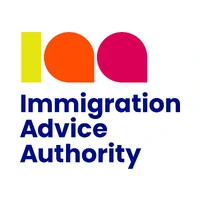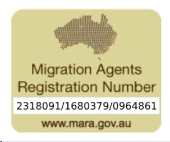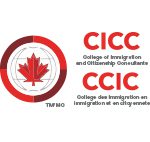The Germany Employment Visa allows non-EU citizens, including UK nationals, to live and work in Germany if they have a valid job offer. This long-term visa is designed for skilled professionals with qualifications recognised in Germany. Depending on your job and salary, it may lead to permanent residence or the EU Blue Card.
The table below has details of the list of documents required for a Germany Work visa:
| Document | Description |
| Valid Passport | Must have at least 2 blank pages |
| Job Offer/Employment Contract | Must specify salary, role, and employer details |
| Academic Degree | Recognised by German authorities (check via ANABIN) |
| CV & Motivation Letter | Highlighting qualifications and job relevance |
| Health Insurance | Must cover initial stay (and beyond if needed) |
| Proof of Funds | If required for your situation |
| Visa Application Form | Completed and signed |
| Biometric Photos | Passport-sized, Schengen format |
You can follow the below steps to apply for a German work visa:
Step 1: Get a job offer from a German employer
Step 2: Check recognition of your qualifications via anabin.kmk.org
Step 3: Book an appointment at your local German embassy or consulate
Step 4: Gather all required documents and fill out your visa application
Step 5: Submit your application and attend an interview (if applicable)
Step 6: Wait for approval (typically 6–12 weeks)
Step 7: Upon arrival in Germany, register your address
Step 8: Apply for a residence permit at the local Foreigners’ Office (Ausländerbehörde)
| Factor | Processing time |
| Average Processing Time | 6 to 12 weeks |
| EU Blue Card Processing | Often faster with higher salary |
| Factor | Processing fee |
| Visa Application Fee | € 75 |
| Residence Permit (post-arrival) | €100–€120 |
Germany offers a wide range of employment opportunities for international professionals, especially in sectors facing critical skill shortages. To support job seekers, official and regional platforms provide access to thousands of verified openings across industries.
Note: Y-Axis can assist you with job search support, resume localization, and direct employer outreach to help you navigate these portals and connect with hiring companies in your field.
If you are applying for a Germany Employment Visa, it is essential that your educational or professional qualifications are recognised in Germany. This ensures that your academic background aligns with the requirements for the job you’ve been offered.
Here’s how to verify and validate your qualifications:
Use the official ANABIN database to see if your degree or institution is recognised in Germany.
If your qualification is not listed or needs further assessment, you may need to request an official Statement of Comparability from ZAB (Central Office for Foreign Education).
If you are applying for roles in regulated sectors such as healthcare, education, or legal professions, formal licensing or professional approval may be required. You may need to go through additional recognition or adaptation procedures.
Note: Y-Axis can assist you with the recognition process, including document verification, ANABIN research, and liaising with ZAB or licensing authorities where needed.
Yes, this visa can lead to permanent settlement in Germany.
Our Accreditations | |||
 |  |  |  |
UK residents can apply for a German employment visa at the German Embassy or Consulate in the UK. First, secure a job offer from a German employer in a skilled occupation. Then gather the necessary documents, including your employment contract, proof of qualifications, CV, and financial means if applicable. Book an appointment and submit your application in person. If approved, you will receive a national visa (Type D) which allows entry into Germany. After arrival, you must register your residence and convert your visa into a residence permit at the local Foreigners’ Office (Ausländerbehörde).
A Germany employment visa (also called a long-stay visa for employment purposes) is a residence permit allowing non-EU nationals, including UK citizens’ post-Brexit, to live and work in Germany. It is intended for skilled professionals who have a concrete job offer and qualifications that match their employment field. Applicants must typically have a degree recognised in Germany or professional qualifications with verified equivalence. Some sectors, such as IT, offer flexibility on formal recognition. The visa is valid for long-term residence and can be a path to permanent residency or Blue Card eligibility.
Language requirements depend on the nature of the job. IELTS or TOEFL scores are not mandatory for the German work visa itself, but a good command of German (usually B1 or higher) is highly beneficial, especially for healthcare, education, and public-facing roles. For IT or engineering jobs, many companies accept English proficiency alone. Still, applicants are advised to demonstrate some level of German language skills to improve employability and integration. Language ability is not a blanket visa requirement but may be assessed by the employer or requested during the visa process if relevant to the job.
Germany faces shortages in several key sectors, especially in STEM and healthcare. In-demand professions include software developers, IT specialists, engineers (civil, mechanical, and electrical), nurses, doctors, and skilled trades like electricians and metalworkers.
| Sector | In-Demand Jobs |
| Information Technology | Software Developers, IT Consultants, System Administrators |
| Engineering | Mechanical Engineers, Electrical Engineers, Civil Engineers |
| Healthcare | Nurses, Doctors, Elder Care Professionals |
| Skilled Trades | Electricians, Metalworkers, Plumbers, Heating Technicians |
| Logistics & Transport | Truck Drivers, Warehouse Managers |
| Education & Childcare | STEM Teachers, Early Childhood Educators |
| Construction | Site Managers, Skilled Construction Workers |
Yes, Germany allows work visa holders to bring their immediate family members, including spouses and children, under family reunification rules. Your spouse may also be eligible to work in Germany without restrictions. To apply, you must show proof of adequate housing, health insurance, and sufficient income to support your family. Family members will need to apply for their own national visas and, upon arrival, register locally and apply for residence permits. Processing times and requirements may vary slightly depending on your city of residence and the type of job you hold in Germany.
A Germany work visa, usually issued as a D-type national visa, is generally valid for up to six months. This visa allows you to enter Germany and complete the process of applying for a residence permit. Once in Germany, the residence permit for employment is typically issued for one to four years, depending on the employment contract and visa category. For example, holders of the EU Blue Card may initially receive a permit valid for up to four years. The duration is directly linked to the terms of your employment and can be renewed or extended if conditions remain valid.
After entering Germany with a work visa, you must follow several steps to obtain your residence permit:
Step 1: Register your address (Anmeldung) at the local residents’ office after finding accommodation.
Step 2: Obtain health insurance, which is compulsory in Germany and must be in place before applying.
Step 3: Book an appointment with the local immigration authority (Ausländerbehörde) in your city.
Step 4: Prepare and submit required documents, including your passport, work contract, proof of accommodation, health insurance, and biometric photos.
Step 5: Attend your appointment, provide biometrics, and answer any verification questions.
Step 6: Once approved, receive your residence permit card, usually issued within a few weeks.
Note: This permit grants you the legal right to live and work in Germany for the approved duration.
The German D-Visa (long-stay national visa) for employment is the entry visa for non-EU citizens planning to work in Germany. Official information is available from German embassies and consulates abroad as well as the Federal Foreign Office and Federal Employment Agency. These sources outline requirements such as job offer confirmation, proof of qualifications, and health insurance. The D-Visa typically permits entry for up to six months, during which you must convert it into a residence permit once in Germany. For accurate and updated information, applicants should consult embassy or consulate instructions in their home country.
Germany does not maintain a single public list of sponsoring companies. However, Jobbörse (Federal Employment Agency’s job portal) and other official platforms advertise vacancies where employers are willing to hire international applicants. Many large firms in sectors facing skill shortages—such as IT, engineering, healthcare, and research—are known to sponsor visas. Applicants should focus on companies actively recruiting globally and check job postings that specify visa sponsorship. Additionally, employers seeking to hire foreign talent must usually apply for a Labour Market Approval through
Non-EU citizens must meet several key requirements to qualify for a Germany work visa:
Note: Meeting these requirements ensures eligibility for the initial visa and subsequent residence permit.
The EU Blue Card in Germany requires applicants to meet a minimum annual salary threshold.
For 2025, the general minimum salary requirement is approximately €45,300 per year.
For shortage occupations (such as IT, engineering, mathematics, health, and natural sciences), the reduced threshold is around €41,000 per year.
Germany work visa applications can be submitted at German Embassies and Consulates located in the applicant’s home country or country of legal residence.
Most major cities worldwide have German missions, including:
German Embassy (capital cities)
German Consulate General (major metropolitan areas)
Applicants must apply based on jurisdiction, meaning the consulate responsible for your region will handle your case.
Always check your local German mission’s website for appointment availability and updated guidelines.
International students who complete a recognized degree in Germany can apply for an 18-month Job Seeker Residence Permit.
The steps include:
Obtain your degree confirmation (graduation certificate or written confirmation from your university).
Gather required documents such as passport, health insurance proof, financial proof, and biometric photos.
Book an appointment at the local Foreigners’ Office (Ausländerbehörde).
Submit your application along with your documents.
Receive your residence permit, allowing you to stay in Germany and search for a suitable job.
To apply for a Germany work visa, you must show valid health insurance coverage.
The process includes:
Choose a health insurance provider (public or private).
Request a visa-acceptable policy confirmation from the insurer.
Submit the insurance confirmation letter during your visa appointment.
After arriving in Germany, switch to statutory health insurance if eligible.
Public providers include TK, AOK, Barmer, etc.
Private insurance is available through approved international insurers.
Typical documents include:
Valid passport
Completed visa application forms
Biometric photos
Work contract or job offer
Proof of qualifications (degrees, certificates)
CV and motivation letter
Health insurance confirmation
Proof of accommodation (sometimes required)
Proof of financial means (if applicable)
Visa fee payment receipt
Document requirements may vary by visa category and consulate.
For most work visas, German language proficiency is not mandatory, especially in sectors like IT or multinational companies.
However:
Jobs in healthcare or education often require B1 or B2 German.
Some recognition processes (e.g., for nurses) require certified language levels.
Learning basic German significantly improves integration and job opportunities.
No.
Non-EU nationals must have a valid work visa or residence permit before starting employment in Germany.
You can only begin working:
After receiving your national work visa, or
After converting your entry visa to a residence permit with work authorization in Germany.
Working without a permit is illegal and can impact future visa applications.
Professional services typically include:
Eligibility assessment
Document preparation assistance
Visa application guidance
Appointment scheduling support
Job search consultation
Relocation assistance
EU Blue Card advisory
Post-arrival services (registration, residence permit application)
Many immigration consultancies and visa experts offer end-to-end support for candidates planning to work in Germany.
There is no single official list of visa-sponsoring companies, but you can find companies open to hiring international talent through:
German job portals like Make It in Germany, StepStone, Indeed Germany, and LinkedIn
Government resource: Federal Employment Agency (BA)
Specialized recruitment agencies
Industry-specific job boards (IT, engineering, healthcare)
Companies offering EU Blue Card positions or facing skilled shortages are most likely to sponsor skilled workers.